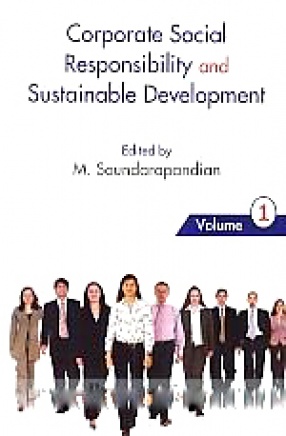
M. Soundarapandian

Showing all 15 books








The main objectives of the New Economic Policy is creating conducive economic environment for promoting sustainable economic growth in the country. The structural reforms comprise measures such as Deregulations, Denationalisation, Defilation, and Devaluation. The Public Distribution System (PDS) in India forms as important strategy for intervening in the distribution of food grains and other essential commodities. The deregulation under economic reforms have ...

Even since the inception of planning for economics development in India, great emphasis has been laid on the development of the Small Scale Industries (SSI) sector. The Central Government has set up a number of agencies to foster the development of the Village and Small Industries (VSI). Apart from these, credit facilities are made available to these industries through a number of institutions. Industrial estates and rural industrial projects have been set up, ...

The objective of the books is to highlight the constraints and suggestions for the development of rural industries in India. Out of the 26 papers, first eight papers have reviewed the problems of rural industrialisation, next two papers highlighted the policies for the small scale industries development. The remaining sixteen papers have analysed the strategies for rural industrialisation in India.


The Indian Textile Industry contributes about the fifth of our industrial production, nearly one-third of total exports and provides employment to millions of people. In the post-liberalization era, the textile industry has undergone several changes, mainly on account of technology development and trends in fashion. The book covers the aspects like Development of textile technology, India’s textile industry under pre-liberalization, post-liberalization and ...

It is widely recognised today that India's organised sector accumulated over the years, a sizable stock of surplus labour. There are three basic reasons for this, firstly the problem of industrial sickness (i.e. non-viability of enterprises); secondly the government kept many non-viable enterprises going in order to protect employment; and thirdly, job creation was viewed as a social obligation of the state and public enterprises. There has been a considerable ...

The New Economic Policy (NEP) has been implemented in India since 1990-91. For the past fourteen years, there are some macro economic policy measures like liberalization, privatization and globalisation (LPG) which have the positive and negative impact on the Indian economy. Agriculture and small scale industries are the backbone of the rural India. In order to analyse the impact of New Economic Policy on the Indian economy, a National Level Seminar was organized ...

While going through the past literature on the subject, it is also clearly noted that some scholars did attempt examination of the impact of economic reforms on the employment/unemployment situation in India (Visaria, 2002, Sen, 1996, 2002, Sundaram, 2001, Dutt 2001, Bandyopathyay and Giri 2001, Chadha 2001; Chandra and Sahu 2002). An attempt has been made to analyse the objective of understanding the magnitude and growth of rural unemployment in India during the ...

The revolution in science and technology, growth of population and intensive industrial development have brought about the environmental crisis in India. There is also relation between the environment degradation and income of the people. The environment protection will lead to the economic development by way of income and employment generation in the agricultural sector. The study aims to analyse the impact of environment degradation on the level of living of ...


The forty-nine papers in this set of two volumes, presented at a national seminar, organized by the Gandhigram Rural Institute, Gandhigram, in association with AICTE, New Delhi, attempt to examine the role of green productivity in resolving the major problems of Small and Medium Enterprises (SMEs) pertaining to the environment, with special reference to India. Explaining the concept of green productivity and how to make it a perpetual movement, the contributors ...

Beekeeping in India is mainly forest based and decentralized industry. It is an ideal activity for development as a subsidiary occupation providing supplementary income to large number of rural, hilly, tribal populations and also for agriculturists and horticulturist because of rich flora available in the country. The present book gives a clear picture about the growth and development of rural industries after implementation of New Economic Policy in India. The ...

The object of this book is to highlight the development of women entrepreneurship, constraints for the women, strategies for the women entrepreneurship development in India. Out of 18 papers, first 13 papers have analysed the above objects and the other papers highlight the performance of the entrepreneurship development programmes.
